It doesn’t take long in a new place to figure out the pecking order of life. Here in
Russia, there has been well-publicized removals of Georgians just a few months ago portrayed as the result of tensions between the two governments. Many complained that it would be the end of decent food and wine in the city. Moreover, it has ushered in a broader scale Russification of the country where people with darker hair and skin are suspect and the target of government action to reclaim, in particular, economic sectors that have long been success of those from the
Caucasus.
I like to walk through Danilovsky Rynok each day near our apartment. My Russian is still not good enough to strike up a conversation with vendors, and I usually feel more comfortable just pointing and asking how much certain things cost since I still lack the vocabulary for most food items. Tristan and I were on one of our evening strolls today picking out a few things for dinner and struck up a conversation with one of the vendors. I had noticed a sign on the entrance earlier in the day, but hadn’t taken the time to decipher its meaning. I did note it was rather official looking and out of place for the rynok. This woman, like many vendors in the market, is from Azerbaijan. She said she remembered me from earlier in the day. We picked out some broccoli and parsley and started to ask about a few other things she had for sale. She had us try some canned figs which were really tasty, but too sweet for us. I said next time maybe, and she said there wouldn’t be a next time. Apparently, all the non-Russian vendors are being kicked out, and she said a Russian guy would be here next week selling in her place. Everyday, she told us, she stands here 10-11 hours a day. It’s hard work. The Russians can’t do it—they are too busy drinking, she says. I showed Tristan the sign and it confirmed that March 30 would be the end of all non-Russian vendors at the market.
While our first response is to view the situation from that of the superior expat, one can’t ignore that this exact same phenomena is taking place in the US. The rynok in Russia or the meat packing plant in Kentucky or the farmland of central Washington, in either place this is the systematic removal of browner people doing the jobs that no one else wants to do. The Russians, as is culturally appropriate, are just far more blunt about the whole thing.
Africans in Russia are routinely the victims of severe violence and hatred. We attended one of the expat churches this past Sunday whose membership includes many Africans. One of their members was attacked by a group of young men with a beer bottle last year on the way to church. I definitely have concerns about being Asian in this city, but do feel lucky to also look very American and possess the privilege of a Diplomatic identity. But I continue to ask myself if this is really significantly different than the US or just far more blatant and less sophisticated? Time will tell.
To read more about Racial Tensions in Russia, click here.
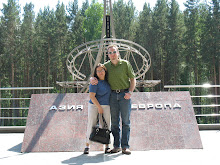









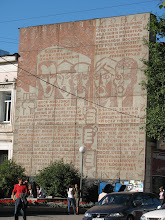
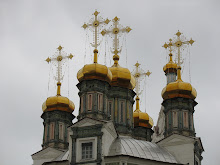
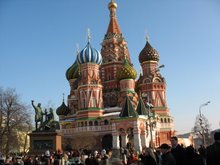
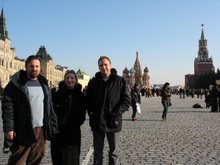

2 comments:
Thanks for remind us that the sins of xenophobia and racism are not just ours. Occassionally it is significant to hear that ours is a global struggle.
I just watched "When the Levees Broke," about Katrina and our failure to respond out of a sense of fairness, justice and equality. It makes me tired to remember how big this struggle is, and it makes me glad to know that our growing global awareness (thanks to your serious reflections) will ultimately contribute to creating the reconciliation and wholeness God desires for us. Thank you.
Post a Comment